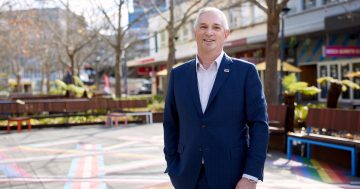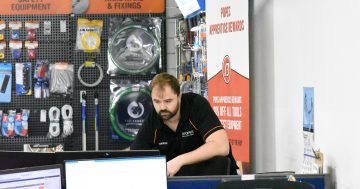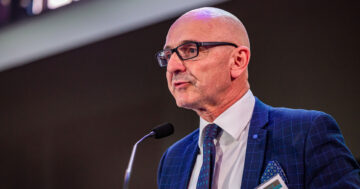
As Canberra slowly bounces back from savage federal spending cuts, the role of the Canberra Business Chamber as a voice for local businesses is more important than ever. We spoke to newly-elected chairman Glenn Keys about his vision for Canberra business.
The Canberra Business Chamber was formed last October as the result of a merger between the Canberra Business Council and the ACT and Region Chamber of Commerce and Industry. Glenn took over from interim executive chairman Tony Henshaw, who oversaw the merger, in February.
Glenn is an obvious choice for Canberra Business Chamber chair. The 2015 ACT Australian of the Year is also the executive director and co-founder of healthcare solution provider Aspen Medical, which is at the centre of Australia’s efforts to combat the Ebola outbreak in West Africa. He’s on the board of the National Disability Insurance Agency, is the chairman of Special Olympics ACT and the founder and chairman of Project Independence, a new housing initiative offering home ownership options for people with a disability.
He brings to his role as chair extensive business know-how and experience, but also understands what it’s like to start small.
“We started our business [Aspen Medical] in Canberra from nothing. We were one of those start from nowhere businesses, so I know what it’s like to be sitting at your dining room table trying to kick off a business and emptying out your mortgage to pay bills and hiring staff from nothing,” he says.
“I get the start up side of the business, but I also get government and exporting because they’re key parts of what Aspen does,” he says.
Glenn says that while the worst of the public sector cuts are behind Canberra, the days of businesses being able to rely on government as a primary revenue source are over. And perhaps that isn’t a bad thing.
“I don’t think that the government’s role is to generate an enormous amount of opportunity for business. I think the government’s role is to do things like the infrastructure projects we’re starting to see out of the territory government, like the redo of public housing. That’s absolutely fundamental and needs to be done,” he says.
He’d like to see Canberra businesses diversify their revenue streams to the extent that when the next recession or round of public sector cuts come around, most businesses “don’t even notice”.
He says both territory and federal governments are getting better at creating opportunities for businesses to grow through accelerator programs, innovation networks and awards that recognise international success.
Personally, he’d like to see more three-way partnerships between government, business and the community.
“I’d like to see these groups get together around specific issues, which could be, for example, urban renewal of suburban shopping centres. If you go and have a look at Downer shops, it really needs some work. How can government, business and the community come together?
“If you look at what’s happened at say, Farrer shops, where the buildings have been refurbished, there are murals on the walls and Fox and Bow is full even in the middle of the week, it’s a real community. It’s time to start asking how can we make that happen in other parts of Canberra.
“That’s just one example. I think we’ve got a number of key areas we need to focus on, and those are transport, innovation, social enterprise, the environment (both built and natural) and Destination Canberra, which is about tourism but also business. The Canberra Business Chamber needs to have very clear and enunciated goals around those five areas.”





















